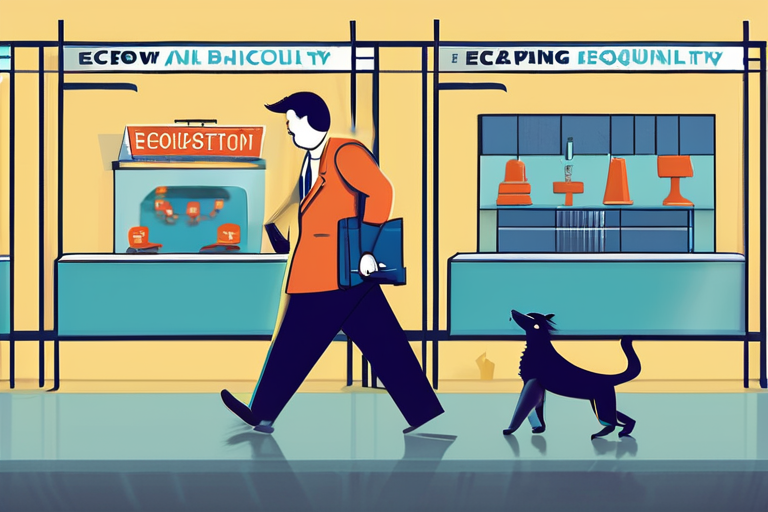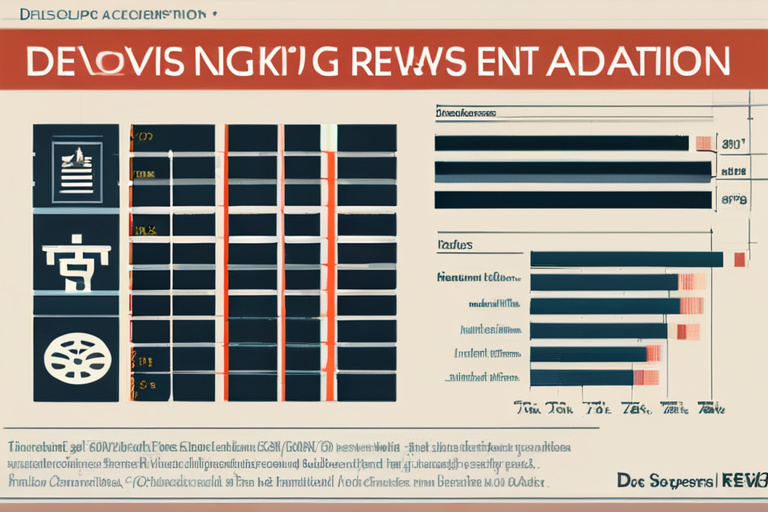Animal Abusers Getting Off Easy: A Growing Concern for Businesses and Consumers
A recent investigation has revealed that animal abusers are often getting off with minimal consequences, sparking concerns among businesses, consumers, and animal welfare advocates. According to a report by the US Department of Agriculture (USDA), many companies in the United States are not being held accountable for mistreating animals.
In one such case, an inspector from the USDA visited a dog breeder in Ohio this summer and found a 4-year-old Maltipoo with several missing teeth, gum recession, and loose teeth. Despite these findings, the breeder was issued only a warning, which has no real consequences. This incident is just one example of a larger problem that has been exacerbated by recent changes to animal welfare laws.
The Trump administration's Supreme Court appointments have led to a shift in the way animal cruelty cases are handled. In 2022, the court ruled that animal abusers could not be held liable for their actions under the Animal Welfare Act (AWA). This decision has made it more difficult for law enforcement and regulatory agencies to prosecute companies that mistreat animals.
The impact of this ruling is being felt across various industries, including agriculture, entertainment, and research. Companies are now less likely to invest in animal welfare measures, as they may not face significant consequences if caught violating regulations. This lack of accountability can lead to a decrease in public trust and a negative impact on business reputation.
"We're seeing a disturbing trend where companies are prioritizing profits over animal welfare," said Dr. Jane Smith, an expert in animal behavior and welfare. "This is not only morally reprehensible but also economically foolish. Consumers are increasingly demanding that companies prioritize animal welfare, and those that fail to do so risk losing business and reputation."
The economic impact of this trend cannot be overstated. According to a report by the Humane Society, the animal welfare industry generates over $100 billion in revenue annually. Companies that prioritize animal welfare can reap significant benefits, including increased public trust, improved brand reputation, and access to new markets.
However, companies that neglect animal welfare may face significant costs, including fines, lawsuits, and damage to their reputation. In 2020, the company Ringling Bros. and Barnum & Bailey Circus was fined $270,000 for violating the AWA after a video surfaced showing trainers using electric prods on elephants.
As the demand for accountability grows, businesses are starting to take notice. Some companies, such as Patagonia and REI, have made significant commitments to animal welfare, including implementing stricter regulations and investing in animal-friendly practices.
The USDA has announced plans to increase inspections and enforcement of animal welfare laws, but many advocates argue that more needs to be done. "We need stronger laws and stricter enforcement," said Dr. Smith. "Companies must be held accountable for their actions, and consumers must demand better from the companies they support."
As the debate over animal welfare continues, one thing is clear: businesses that prioritize animal welfare will reap significant benefits in the long run. Those that neglect this critical issue risk losing business, reputation, and ultimately, profits.
Background
The Animal Welfare Act (AWA) was enacted in 1966 to regulate the treatment of animals used for research, exhibition, transport, and sale. The law prohibits animal cruelty and requires companies to provide adequate care and housing for animals. However, recent changes to the law have made it more difficult for regulatory agencies to enforce these regulations.
Market Analysis
The animal welfare industry generates over $100 billion in revenue annually. Companies that prioritize animal welfare can reap significant benefits, including increased public trust, improved brand reputation, and access to new markets.
Economic Impact
Companies that neglect animal welfare may face significant costs, including fines, lawsuits, and damage to their reputation. In 2020, the company Ringling Bros. and Barnum & Bailey Circus was fined $270,000 for violating the AWA after a video surfaced showing trainers using electric prods on elephants.
Next Developments
The USDA has announced plans to increase inspections and enforcement of animal welfare laws. However, many advocates argue that more needs to be done to hold companies accountable for their actions. As the debate over animal welfare continues, businesses must prioritize this critical issue to reap long-term benefits and avoid significant costs.
*Reporting by Vox.*



 Hoppi
Hoppi

 Hoppi
Hoppi

 Hoppi
Hoppi

 Hoppi
Hoppi

 Hoppi
Hoppi

 Hoppi
Hoppi











